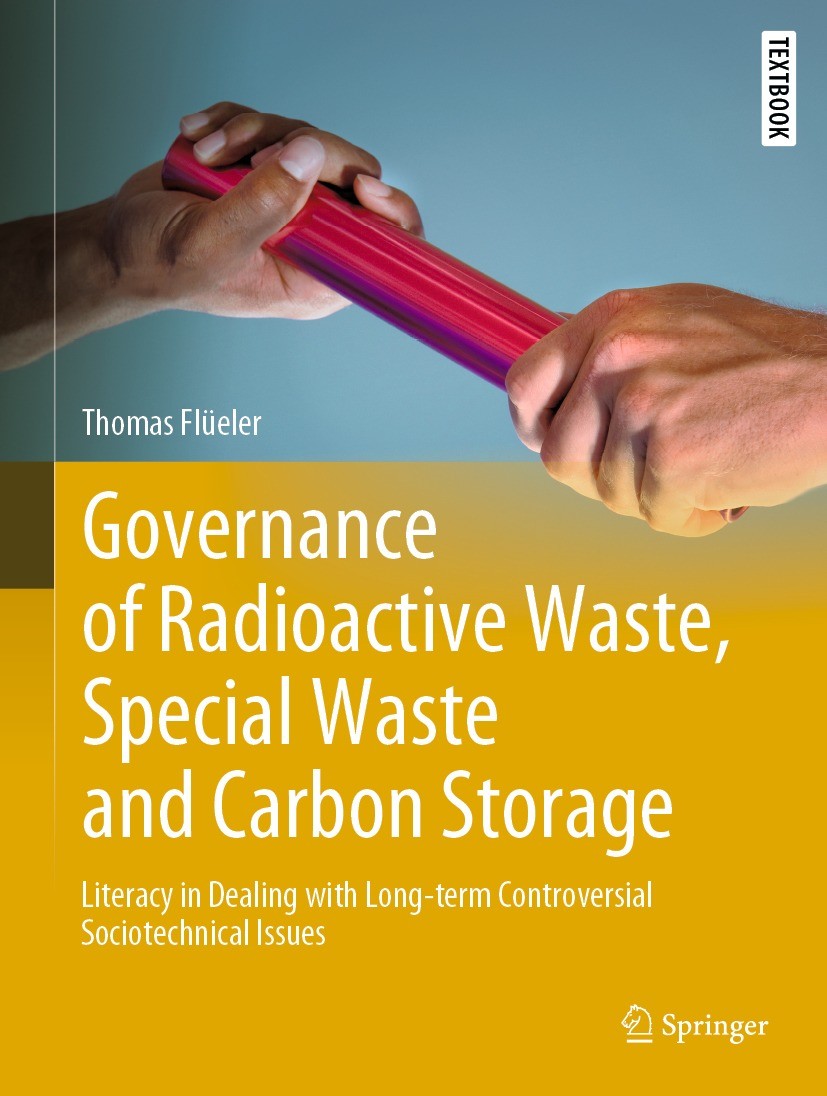| 书目名称 | Governance of RadioactiveWaste, Special Waste and Carbon Storage | | 副标题 | Literacy in Dealing | | 编辑 | Thomas Flüeler | | 视频video | http://file.papertrans.cn/388/387560/387560.mp4 | | 概述 | Analyzes the planning and implementation of controversial long-lasting waste (nuclear, toxic and carbon storage) programs.Proposes ways to tackle the issues in the long run, based on extensive regiona | | 丛书名称 | Springer Textbooks in Earth Sciences, Geography and Environment | | 图书封面 |  | | 描述 | .This book demonstrates that the long-term safety of nuclear waste repositories, special waste disposal and carbon storage (CCS) is highly challenging and monitoring may contribute to substantiate evidence, support decision making and legitimise the programme. Deep geological disposal is a long-term safety issue and, in parallel, requires long-term institutional involvement of the technoscientific community, waste producers, public administrators, NGOs and the public. What, where and when to monitor is determined by its goal setting: It may be operational, confirmatory (in the near field) or environmental (far field). Strategic monitoring as proposed here contributes to process, implementation or policy and institutional surveillance. It not only addresses the controversial long-lasting “problem” (of nuclear, other toxic or CO.2. waste) but investigates some ways to approach for “solutions” or solution spaces – not just technical but also institutional, societal and personal. It includes the tailored transfer of knowledge, concept and system understanding, experience and documentation to specific audiences above. It is an integrative tool of targeted yet adaptive management and may | | 出版日期 | Textbook 2023 | | 关键词 | Long-term governance; Radioactive/nuclear waste; Deep geological repositories; Carbon capture and stora | | 版次 | 1 | | doi | https://doi.org/10.1007/978-3-031-03902-7 | | isbn_softcover | 978-3-031-03904-1 | | isbn_ebook | 978-3-031-03902-7Series ISSN 2510-1307 Series E-ISSN 2510-1315 | | issn_series | 2510-1307 | | copyright | The Editor(s) (if applicable) and The Author(s), under exclusive license to Springer Nature Switzerl |
The information of publication is updating

书目名称Governance of RadioactiveWaste, Special Waste and Carbon Storage影响因子(影响力)

书目名称Governance of RadioactiveWaste, Special Waste and Carbon Storage影响因子(影响力)学科排名

书目名称Governance of RadioactiveWaste, Special Waste and Carbon Storage网络公开度

书目名称Governance of RadioactiveWaste, Special Waste and Carbon Storage网络公开度学科排名

书目名称Governance of RadioactiveWaste, Special Waste and Carbon Storage被引频次

书目名称Governance of RadioactiveWaste, Special Waste and Carbon Storage被引频次学科排名

书目名称Governance of RadioactiveWaste, Special Waste and Carbon Storage年度引用

书目名称Governance of RadioactiveWaste, Special Waste and Carbon Storage年度引用学科排名

书目名称Governance of RadioactiveWaste, Special Waste and Carbon Storage读者反馈

书目名称Governance of RadioactiveWaste, Special Waste and Carbon Storage读者反馈学科排名

|
|
|
 |Archiver|手机版|小黑屋|
派博传思国际
( 京公网安备110108008328)
GMT+8, 2026-1-18 23:33
|Archiver|手机版|小黑屋|
派博传思国际
( 京公网安备110108008328)
GMT+8, 2026-1-18 23:33


